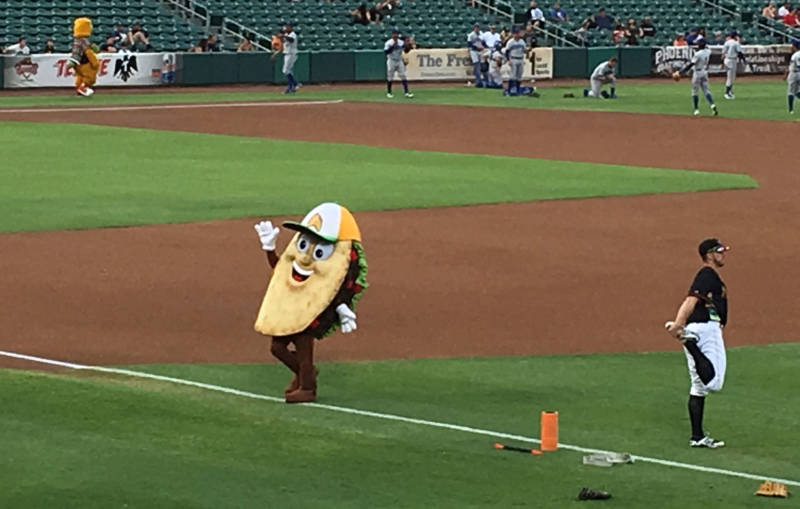Do you know what makes the world feel a little bit more normal in the midst of the pandemic?
The start of the baseball season and the return of teams like the A's and Giants.
But what about the Rancho Cucamonga Quakes and Lake Elsinore Storm? How about the Modesto Nuts?
These and other minor league baseball teams in the state are now getting ready for the start of the season. The California Report's Saul Gonzalez spoke recently to Benjamin Hill, who covers the business of Minor League Baseball, about the challenges teams have faced during the pandemic. The following has been edited for length and clarity.
How has Minor League Baseball fared during the pandemic?
Benjamin Hill: It goes without saying it was a very difficult year. That obviously applies to almost all businesses and especially the sports industry. Minor League Baseball, I'd say, was hit particularly hard, because unlike major sports, there's not much broadcast revenue in the industry at all. It's a live entertainment business.
So in the absence of actually being able to have fans in the stands, there was literally nothing happening, not to mention just all the pandemic-related concerns. There was just nothing they could do to get a season off the ground. And a lot of these teams are not raking in the big bucks. So to lose an entire season and have the pandemic hit in March when they'd already spent so much money preparing for the season, it was kind of the worst-case scenario.
Pandemic aside, you also have Major League Baseball looking to restructure the minors and cut the number of teams. Here in California, the Lancaster JetHawks went under after they were evicted from the California League. What's been happening on that front?
At the end of the 2020 season, which really wasn't a season at all, the professional baseball agreement — the relationship and arrangements between Major and Minor League Baseball — expired, and Major League Baseball initiated a much larger change of the landscape. Most significantly, where there were 160 teams over six levels of play, going into 2021, there are 120 affiliated teams over four levels of play.
As minor league teams return to play while also trying to maintain COVID precautions, how challenging do you think that's going to be?
It's going to take awhile until we're at a full capacity ballpark. So it's still going to be a struggle. I think teams are going to save some of their premier promotions and some of those nights where they really want to pack the ballpark until late in the season. I think there's huge optimism and excitement, big picture. But also it's going to be tough in the early going because if you're playing to 25%, 35%, 40% capacity and you're dependent on attendance for your revenue, there's only so much money you can make.
What would be your best reasons for going to a game if that's something you've never done before?
It sounds like a cliche, but there are very few things better than being at a minor league ballpark on a beautiful summer night, being around other people in the community and letting worries go. After the year we all had and having had no Minor League Baseball at all, absence makes the heart grow fonder, so it'll be that much greater at a ballpark in 2021 and beyond.

